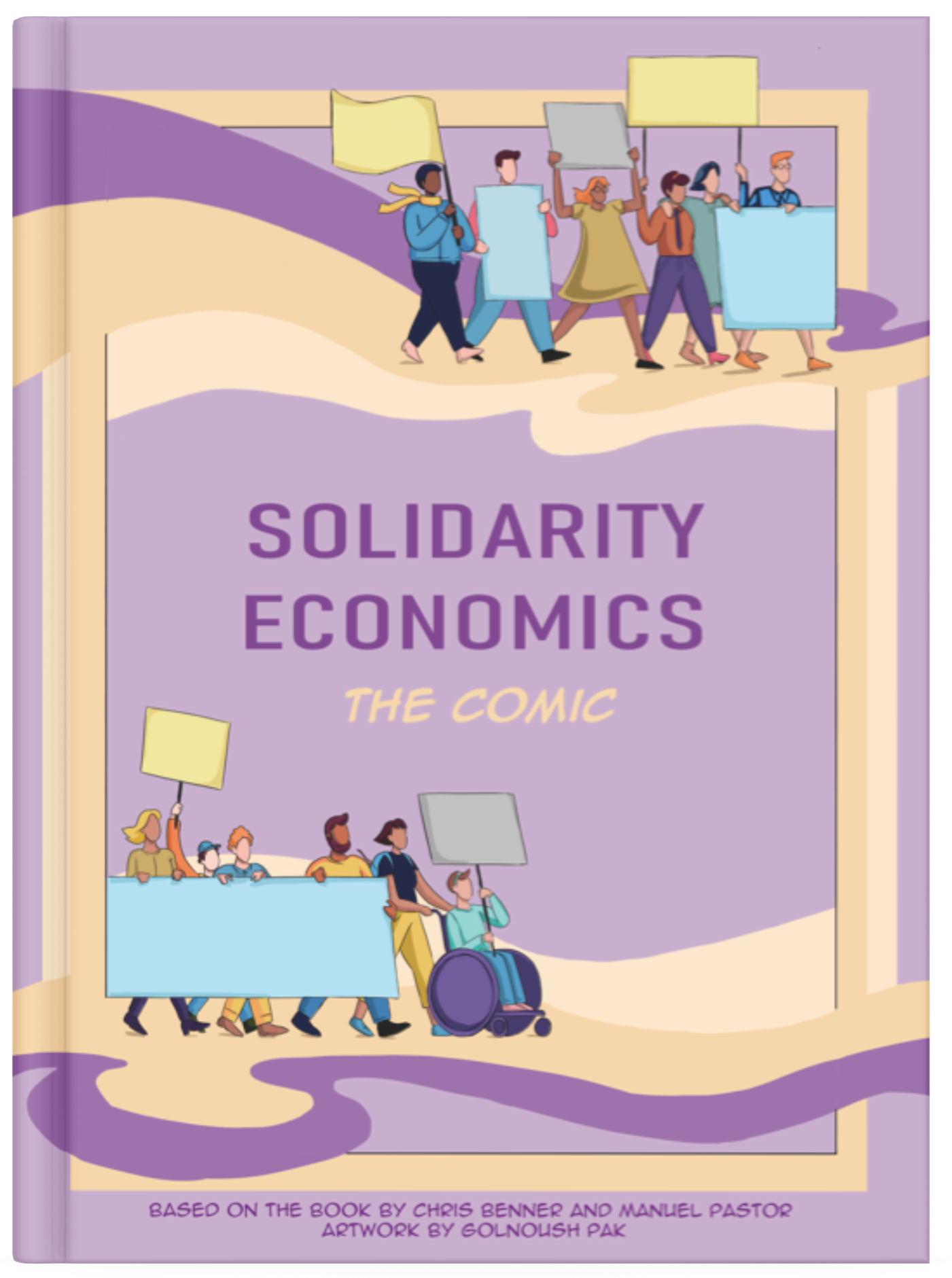About the Comic

Traditional economics is built on the assumption of self-interested individuals seeking to maximize personal gain. This is far from the whole story, however: sharing, caring and a desire to uphold the collective good are also powerful individual motives. In a world wracked by inequality, social divisions, and ecological destruction, can we build an alternative economics based on our mutual co-operation?
This comic provides a short introduction and summary of key points of the Solidarity Economics book by Dr. Chris Benner and Dr. Manuel Pastor. In this book Chris Benner and Manuel Pastor invite us to imagine and create a new sort of solidarity economics – an approach grounded in our instincts for connection and community – and in so doing, actually build a more robust, sustainable, and equitable economy.
They argue that our current economy is already deeply dependent on mutuality, but that the inequality and fragmentation created by the status quo undermines this mutuality and with it our economic wellbeing. They outline the theoretical framing, policy agenda, and social movements we need to revive solidarity and apply it to whole societies.
Solidarity Economics is an essential read for anyone who longs for an economy that can generate prosperity, provide for all, and preserve the planet.
Solidarity Economics: The Comic
Or, read online: Tapas.io or PDF Version
Solidarity Economics: The Comic Synopsis
Solidarity Economics is an alternative economic frame that recognizes that people are not just individuals, but also members of broader social groups and communities; that people are motivated not just by self-interest, but also by caring for others and a desire for belonging; and that we can and should build our economy not on an embrace of individuality and competition, but rather on a sense of the commons and our shared destiny.
Solidarity Economics: Mini-Comic
Mini-Comic Synopsis
An introduction to the Solidarity Economics Comic, providing an overview view of core principles of Solidarity Economics and how to implement the economic frame into your own communities.
Una introducción al Comic de Economía Solidaria, que brinda una visión general de los principios básicos de la Economía Solidaria y cómo implementar el marco económico en sus propias comunidades.
Economía Solidaria: El Comic
Economía Solidaria: El Comic Sinopsis
La economía tradicional se basa en la suposición de individuos interesados en sí mismos que buscan maximizar la ganancia personal. Sin embargo, esto está lejos de ser la historia completa: compartir, cuidar y el deseo de defender el bien colectivo también son poderosos motivos individuales. En un mundo asolado por la desigualdad, las divisiones sociales y la destrucción ecológica, ¿podemos construir una economía alternativa basada en nuestra cooperación mutua?
